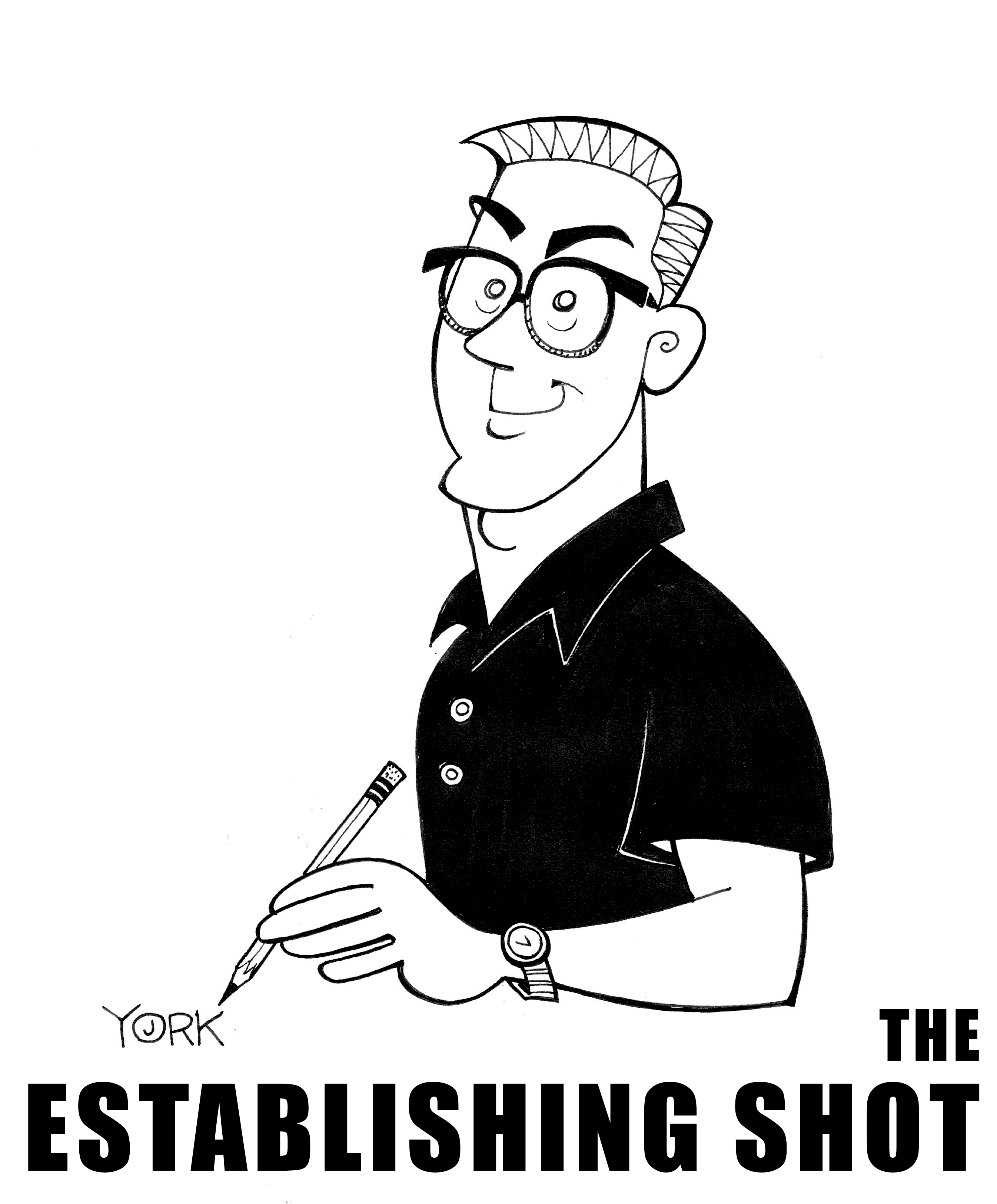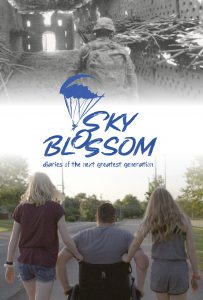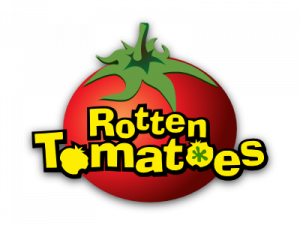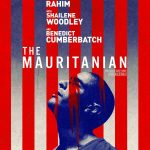Sometimes watching a movie can feel like a party, a raucous good time. Occasionally, it can feel like a chore, a drag to muddle through. And ever so rarely, viewing a film feels like a privilege, something so special it knocks you sideways. This was my experience during the new documentary SKY BLOSSOM. It’s an intimate study of five military families caring for the former service members in their nucleus. These veterans continue to suffer from combat-related injuries and medical conditions, and as directed by MSNBC journalist turned filmmaker Richard Lui, the doc is unflinching in its portrayal of their struggles. The film is also utterly inspiring as it showcases how vividly their families take care of them. I felt extremely humbled watching their stories.
The term “Sky Blossom” is explained in the first moments of the film, a quote from Colonel Jack Jacobs of the 82nd Airborne in Vietnam, who described parachuting soldiers as looking like flowers floating down to aid in the fight. Lui showcases the at-home version of such aid, chronicling the budding spirit of the soldier’s caregivers. It’s a novel depiction, too, because the primary caregivers here are teens. As the parents work, it falls upon the youths to handle things at home. It’s a fresh and welcome depiction of Millennials, too often caricatured as the “less than greatest” generation.
One of such admirable young people in the film is 15-year-old Deryn Allen of McMinnville, TN. She’s a good kid – smart, self-aware, and a popular cheerleader. When she gets home, she’s an even better kid, helping her father Chaz, a double-amputee in a wheelchair, with all his needs. They have a wonderful relationship, but Lui doesn’t resist showing how difficult it is for Chaz and Deryn. The task of putting on his prosthetic legs is physically exhausting for both of them day in and day, but that’s just one of the dozens of ways Chaz’s daughter is there for him. It’s truly something to behold.
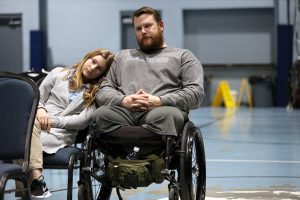
Deryn and her father Chaz Allen.
The other families are introduced too, interwoven seamlessly throughout, giving the film a quilt-like feel. Indeed, they’re all connected and part of our nation’s fabric. Brian Alvarado and his family live in Long Beach, CA; the Rob Grier family is in Wexford, PA; the Kapanui family resides in the warm burg of Waimea, Hawaii; and the Ploof family lives in Howell, MI. Each family has its own tragic story, but as you watch them all persevere, there’s a contagious feeling of love and optimism. The Grier’s watch their once-proud father Rob struggle just to be able to breathe and walk, but they buoy his spirits daily. Bill Ploof, recovering from a disabling stroke, relies on his two daughters for help even though they’ve been abandoned by their mother and experienced homelessness with him. It is almost surreal, but these three wonderful people press on.
In the Kapanui family, Grandfather Bobby Nawai is losing his fight against Alzheimer’s. He is a gentle soul, still helping with chores around the house despite his increasing dementia. He loves his family, including granddaughter Kamaile, 26, grandson Kaleo, 18, and their menagerie of pets, chickens, and a goat. They all love him back, and even though Kaleo has to put his college dreams on hold for a while, he speaks only adoringly of his gramps. The kid realizes that there will be time for school eventually and all that he’s experiencing now is quite the education unto itself.
It’s wonderful that Lui accentuates the positive, but he doesn’t shy away from heartbreaking moments either. Brian Alvarado’s plight is horrifying, a once handsome Marine and family man leveled by throat cancer and autoimmune muscle disease brought upon by exposure to chemicals from base garbage fires in the Mideast. His home is filled with pictures showing his former healthy self, which serve as a chilling contrast to his painfully thin condition now. Alvarado can only eat intravenously through a tube in his stomach as well, and watching him watch his wife Rocio enjoy bacon and eggs for breakfast when he cannot is devastating.
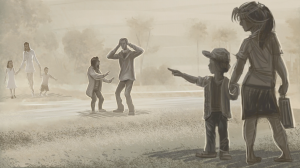
A still from the animated segment showing Brian Alvarado and his daughter Rhianna in the park.
Sometimes Lui utilizes animation to dramatize events from the past or those his camera didn’t catch, such as when Alvarado finds comfort in his daughter Rhianna’s arms after some finger-pointing and mean stares from onlookers in a park. The drawings aren’t Pixar-slick; instead, they are hand-painted with a simplicity that grounds them and makes them all the more effective. Kudos to animators Nicholas Kiray, Davy Liu, Lin Hui Ding, Jon Stoll, Andie Villaneuva, Lulu Jiang, and Aaron Hwang for their distinctive work here which elevates Lui’s film all the more.
The production values are superb in all other areas too. The camera gets very close to the action in each household yet never seem intrusive. The families themselves don’t ever appear to be self-conscious while being filmed. Lui’s cinematographer Eliana Alvarez Martinez has a deft touch, capturing the nuance of expression and details in the settings that say so much as well. You know these families are solid because she captures lots of fun shots showing their adorable pets having a blast.
Perhaps the most striking technical aspect of SKY BLOSSOM is the underscore written by Maria Lineva. Mixing sound design with passages more melodic, Linerva’s synthesizer can gently nudge the pathos as well as the bravos. Her score helps make the animated sections all the more moving too. It’s easily one of the more impressive scores in this movie season.
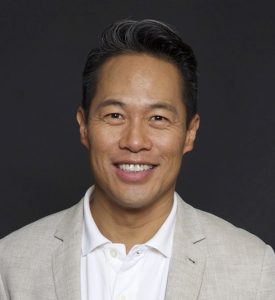
Filmmaker Richard Lui.
As the film concluded, I wondered how each of these families has been dealing with the extra burden of COVID-19. I suspect that they are all managing as well as they can. They’ve overcome so much already, handled so many crises’ for years, they probably are taking the pandemic in stride with similar courage and pluck.
I encourage everyone to seek out Lui’s film and watch it with your family or loved ones if you can. Call your congresspeople afterward too and urge them to appropriate more for vets, their families, and the frontline workers needed to assist in their care. This terrific documentary bowled me over, and I think you’ll be moved demonstrably as well. An unvanquishable spirit is coursing through it, one that should inspire us all to care more and love more.
